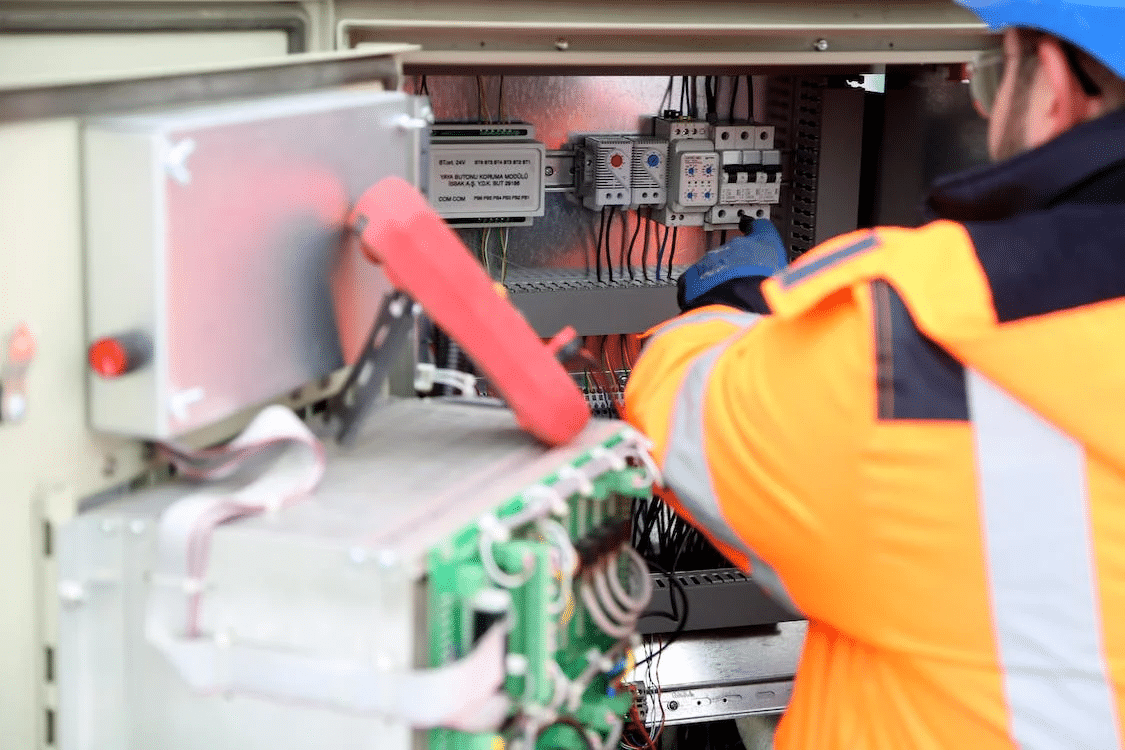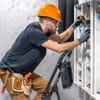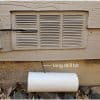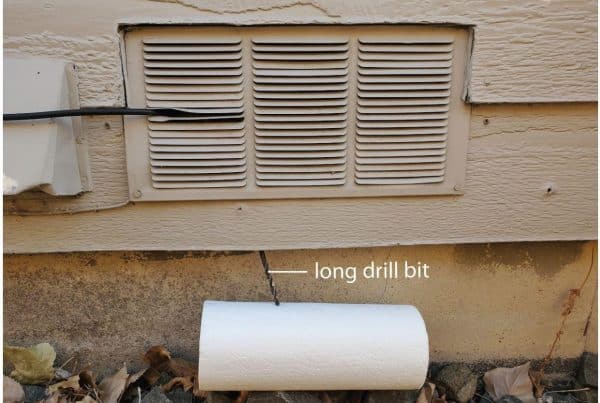An electrician is someone who installs and troubleshoots anything related to electrical circuitry in the home or business. An electrician’s job is vital, and electrical hazards can be deadly. As such, it’s important never to attempt to install electrical components unless you know what you’re doing.
If you want to pursue a career as an electrician, you must have basic electrical knowledge and complete an apprenticeship to become a licensed electrician. Once you have your license, there are myriads of job opportunities for electricians abroad you can apply to on job aggregator Jooble.
As a qualified electrician, you are responsible for ensuring the safety and efficiency of a house. Whether working independently or in a team, you are responsible for establishing and maintaining a safe work environment as an electrician. In this article, we will be delving into some of the different ways an electrician ensures a house is safe and efficient.
Installing proper wiring and system
One of the common causes of electrical hazards is faulty electrical wiring or systems. When improper wires or systems are installed in a home, it can lead to electrical hazards such as overheating and fires. To prevent this hazard, a qualified electrician ensures the use of wires that are of appropriate size for the house’s needs. The electrician also ensures the systems used in a house, such as the outlets, switches, and panels, are ideal to prevent potential hazards. Electrical hazard due to using improper wire size is dangerous. So, it’s important to always hire a professional electrician to avoid this potential electrical hazard.
Upgrading electrical systems
If you’re renovating your home and upgrading an electrical appliance, consulting an electrician is vital. The electrician will help ensure your existing electrical system is sufficient for the upgrade or if you need to make a few changes. In case you need to make any adjustments, the electrician will inform you of the changes that should be made to prevent overloading. When there’s an overload in any part of your electrical system, heat builds up, which can quickly result in a fire outbreak.
Grounding and bonding
Grounding is an electrical concept also known as earthing, where an electrician creates a connection between outlets and the earth. So, in a situation where there’s a faulty current from any equipment, the earth wire carries it from the equipment to the earth, thus protecting the power system, installation, and devices. Bonding is a part of the earthing process which electricians use to ensure all the metallic parts of the power installation are protected from faulty currents.
Grounding and bounding are safety measures electricians use to protect a house from electrical hazards such as electrocution, damaging electrical devices, and even fire outbreaks.
Childproofing outlets
If you have children in a house, childproofing outlets are vital to protect the children from electrical shocks. Children are very inquisitive, which makes them curious about certain things, including the outlets in a house. Parents and guardians can’t monitor children at all times, so it’s important to take safety measures to protect them from certain hazards that are avoidable. Childproofing outlets or tamper-resistant receptacles are inexpensive solutions to cover electric outlets from children playfully electrocuting themselves with a power outlet.
Emergency repairs
If you ever notice small issues like electrical sparks at an outlet or a circuit breaker, it’s important to seek the help of an electrician. Rather than troubleshooting the issue yourself, the problem might be more extensive than you realize. So, it’s safer to consult an electrician who will troubleshoot the problem and repair it from its main cause.
Adherence to building code and standards
Another way electricians aid in ensuring the safety of a house is by adhering to building codes. Depending on your jurisdiction, the electrical code may vary slightly. But the electrical building code is an extensive document that reflects the electrical standards of electrical wires and installation for homes and businesses. An electrician is aware of these codes and will ensure a house is in compliance with these codes, whether it is the writing voltage and current capability or the environmental conditions. Also, electricians are vital in ensuring houses adhere to different building standards, such as the NFPA family of codes or IEC, depending on your jurisdiction.
Inspection and maintenance
Also, an electrician can help perform inspection and routine maintenance checks on a building to ensure it is safe. These inspections include checking the condition of wires, circuit breakers, ground connectors, etc. It’s important to have these routine checks to ensure there is no potential electrical hazard waiting to escalate.
Conclusion
Conclusively, having an electrician around is handy when it comes to electrical issues. Electrical hazards can be very dangerous and should be taken seriously. So, from installing to inspecting and maintaining the electrical components of a home, ensure to consult with an electrician, except you know what you’re doing to prevent any hazard.








